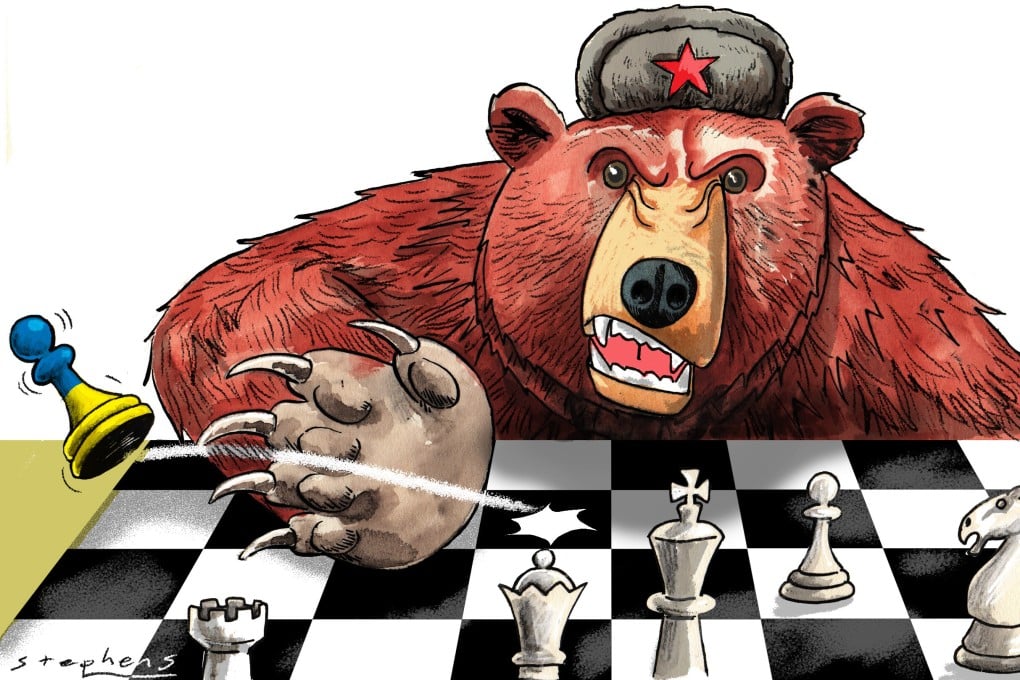Advertisement
Opinion | Why viewing Russia’s invasion of Ukraine as a tyrant’s master plan is naive
- Moscow’s declaration of war is a product of geography, history and great power rivalry, and must be understood in the context of an international relations system motivated by self-interest
- Refusing to be clear-eyed about Russia’s security interests could result in the country reacting with overwhelming force
Reading Time:3 minutes
Why you can trust SCMP
41

With Moscow’s war on Kyiv now into its third week, an asymmetry in power is in place with Russia advancing steadily and clinically against an outmatched Ukraine, taking out military assets and their supporting infrastructure. This war is very much the product of geography, history and great power rivalry.
Advertisement
Though the notion of national sovereignty is well established, the reality is that international relations are built around power and self-interest. Critically examining this phenomenon is vital to understanding the sequence of events and finding a peaceful resolution to this conflict.
A time lapse of Russia’s military advance shows this was no last-minute decision. The approach and seized territories are strategic to Russian interests, showing the capture of a sizeable portion of eastern Ukraine while moving westwards to create a pincer formation. Additionally, there looks to have been a complete takeover of the Azov Sea.
We can expect Russia to pursue a short, intense military battle that decapitates Ukraine militarily, spooks Nato and the West, and pushes Kyiv to the negotiating table under duress. Ukraine will have to absorb these attacks, mount an insurgency that bleeds Moscow dry and hope for more substantive help from the West.
Whichever side can reach these goals first will shift the power dynamic in its favour at the expense of the other. Ultimately, though, both sides are the losers.
As the war drags on, Russia will always be the loser in a public relations battle, given the visceral international response to its attack among all mediums of mass communication. We are seeing an outpouring of solidarity with Ukraine and equal scorn poured on Russia, and in particular Russian President Vladimir Putin. Of course, this kind of contempt for Moscow has been around for a long time.
Overall, we should view this invasion as a collapse of diplomacy. This failure needs to be seen through an objective lens that examines the causal effects of what we are seeing today. To assume that Russia’s actions are just the product of a bloodthirsty tyrant is a form of naivety.
Advertisement

Advertisement
